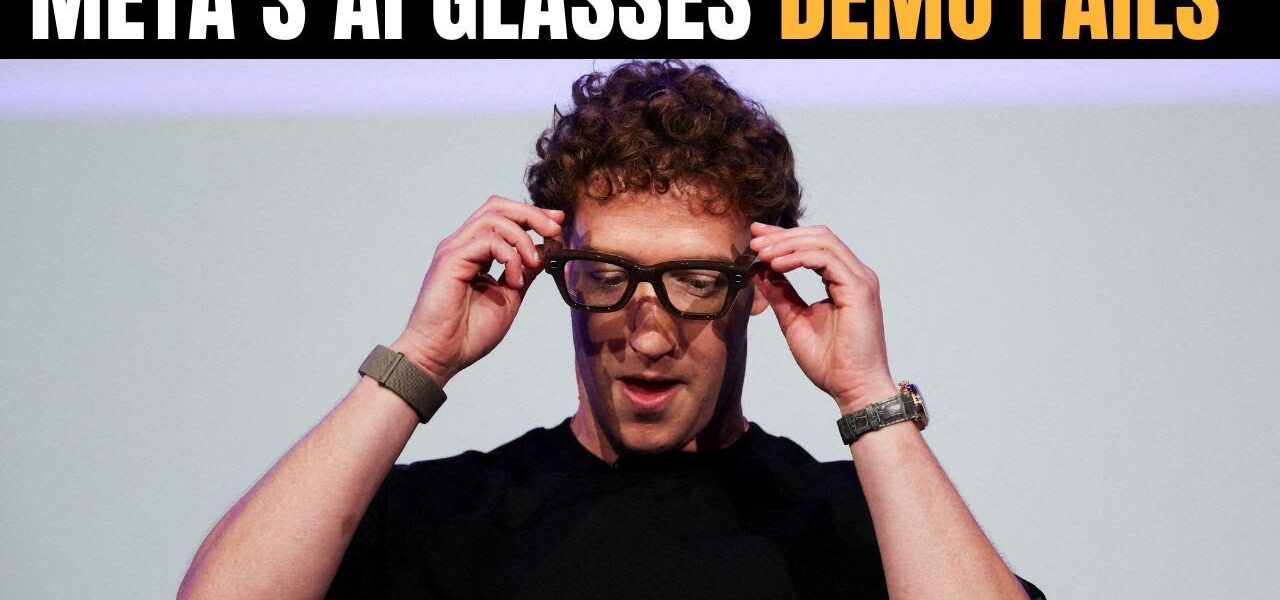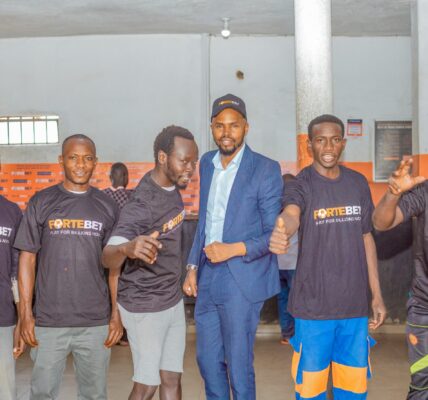What was meant to be a victory lap for Mark Zuckerberg turned into an awkward reminder of how fragile new technology can be. Under violet stage lights at Meta’s California campus, the CEO unveiled the company’s latest AI-powered smart glasses, starting at $799 and marketed as a leap into a “bold new age of wearable AI.”
But during live demos, the futuristic eyewear stumbled — twice.
Cooking Demo Gone Wrong
In one showcase, a chef wearing the glasses asked for step-by-step help with a Korean-inspired sauce. Instead of guiding him from the beginning, the AI repeatedly skipped the first steps, forcing him to keep asking: “What do I do first?” The system froze mid-reply, leaving the audience with more laughs than inspiration.
Zuckerberg brushed off the glitch, joking that even years of engineering can be undone by “the Wi-Fi on the day.”
Zuckerberg’s Own Demo Failure
The second misfire came when Meta’s CTO called Zuckerberg via WhatsApp. The glasses were supposed to pick up the call using Meta’s experimental neural band — a wrist bracelet that translates tiny movements into text commands. Instead, the band froze, leaving Zuckerberg tapping helplessly at the air.
“I don’t know what happened… let’s just go to the next thing,” he admitted, before moving on.
The irony wasn’t lost on observers: Meta is trying to wire the future, but it couldn’t even pick up the phone.
Meta’s Wearable Bet
Despite the glitches, Zuckerberg argues that smart glasses remain a strong bet. Unlike bulky VR headsets, glasses are already part of people’s daily lives. By partnering with Ray-Ban and selling over 2 million pairs since 2023, Meta has built early momentum.
Wearable computing could be the next great interface — but execution is the hurdle.
A Company With Too Many Bets?
In the past three years, Meta has rapidly pivoted:
- First, it poured billions into the Metaverse, only to see the platform flop.
- Then came VR headsets, which gained traction with gamers but stalled elsewhere.
- Now, AI-powered glasses are the latest push, alongside a $15 billion investment in AI data centers and aggressive recruitment of top talent.
Unlike rivals that focus on one core platform — Apple with the iPhone, Google with Search, Amazon with Prime — Meta is spreading across many fronts at once: social media, VR, AR, hardware, AI, and more.
The result: a company chasing every future, but mastering none.
Protests Outside Meta
Adding to the tension, protests are growing outside Meta’s offices. Parents, activists, and former employees are demanding stronger protections for children online, accusing the company of hiding research showing its platforms’ harmful effects.
This contrast is stark: Zuckerberg is pitching eyewear that could transform lives, while families are asking the company to stop damaging theirs.
The Big Question
So, what is Meta today?
- A social media company?
- A hardware maker?
- An AI lab?
- A VR studio?
Right now, it’s trying to be all of them at once. And while ambition is good, critics argue Meta hasn’t yet proven it can master the core platform that built it: social media.






